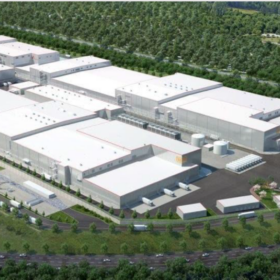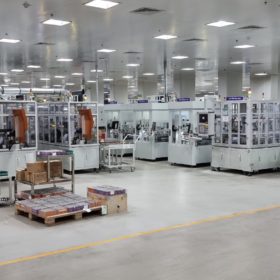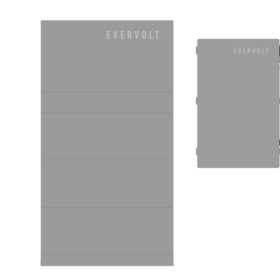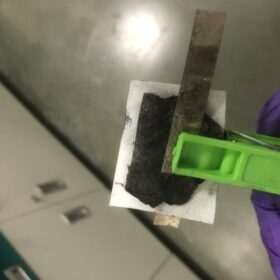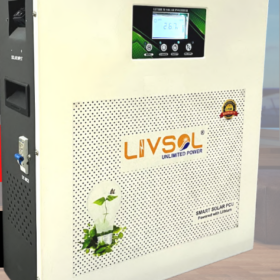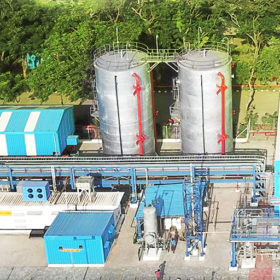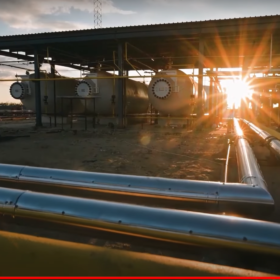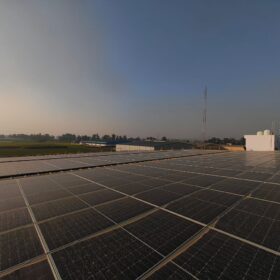Tata Group to invest over $5 billion in 40 GWh UK battery fab
Tata Group will build a 40 GWh battery factory in the UK to produce batteries for Jaguar Land Rover (JLR) and other EV manufacturers in the UK and Europe.
Exide Energy secured $85.3 million of orders for lithium-ion battery packs, modules in fiscal 2022-23
Exide Energy (Nexcharge), which started commercial production last year, received a healthy order inflow for lithium-ion-based battery packs and modules during FY 2022-23.
Panasonic introduces new home battery
Panasonic’s EverVolt home battery supports DC and AC coupling for new and existing solar arrays.
GERMI develops biodegradable paper supercapacitor from seaweed
The researchers deposited reduced graphene oxide (rGO) and zinc oxide (ZnO) nanowires over seaweed cellulose to make the anode material for the supercapacitor. The device exhibited a greater energy density of 5.21 Wh/kg, a series resistance of 2.16 ohms, and no air degradation even after 5,000 cycles.
Wall-mounted solar inverter with inbuilt lithium battery
India’s Livsol has introduced wall-mounted lithium battery inverters in 300 VA, 1 kVA, 2 kVA, 3 kVA, and 5 kVA models with operating voltages of 12.8 V, 12.8 V, 25.6 V, 51.2 V, and 48 V, respectively.
L&T forms Green Energy Council
The council will identify technology trends in green energy, analyze the evolving global policy developments, evaluate emerging business models, and advise on collaborations.
Solarizing the telecom tower sites in India
Delta Electronics India is a leading power and energy management solutions provider for the telecommunications industry. Rajesh Kaushal, vice president at Delta Electronics India, speaks to pv magazine about solarization of telecom tower sites in India, Delta’s role in driving this transition with its energy management solutions, challenges, and the way forward.
Amara Raja breaks ground on 16 GWh li-ion cell, 5 GWh battery pack factory
Executive director Vikramadithya Gourineni told pv magazine their Telangana factory will produce lithium ferro phosphate (LFP) and nickel-manganese-cobalt (NMC) chemistry cells.
Exide targets 12 GWh of li-ion cell capacity by 2027
Gayatri Dadheech, chief technology officer at Exide Industries Ltd, told pv magazine their first-phase 6 GWh lithium-ion cell manufacturing capacity in India would become operational by December next year and will produce lithium ferro phosphate (LFP) and nickel-manganese-cobalt (NMC) cells. The following 6 GWh, targeted by 2027, could be based on advanced lithium-ion, solid-state, or other battery technology.
India will require INR 9 trillion capex to meet 2030 green hydrogen target
A new report says India will require INR 5.5-6 trillion to create 115-125 GW of renewable energy capacity and INR 3-3.5 trillion to meet 35-40 GW of electrolyzers requirement in order to reach green hydrogen production capacity of 5 MMT per annum by 2030.
